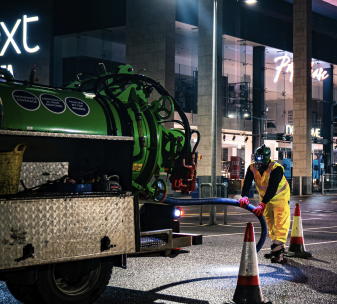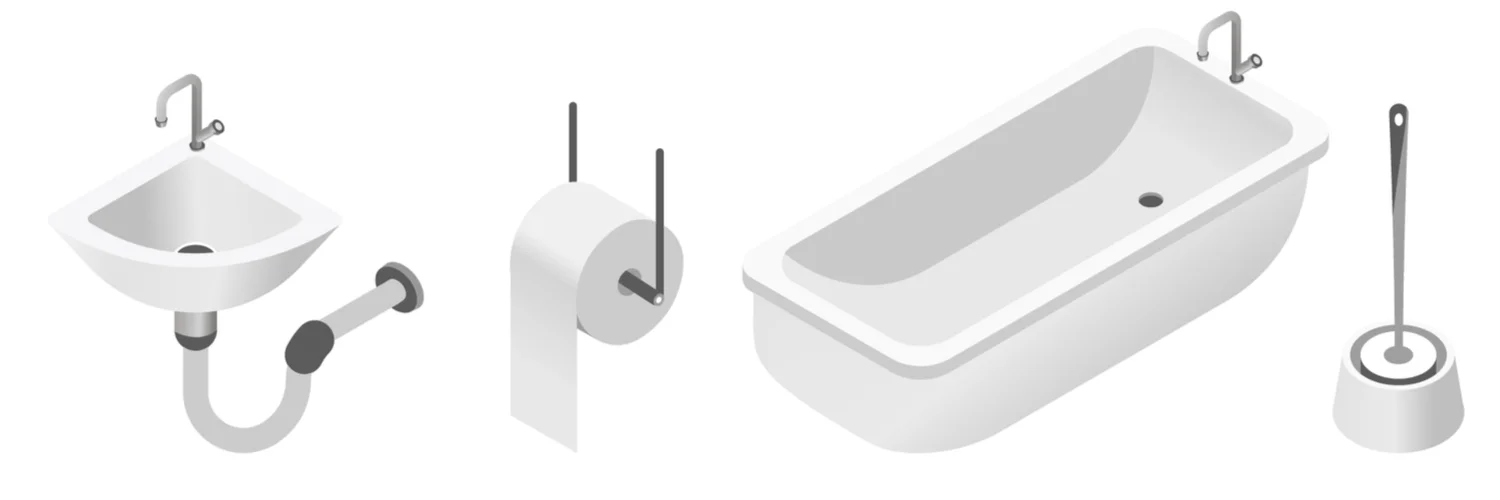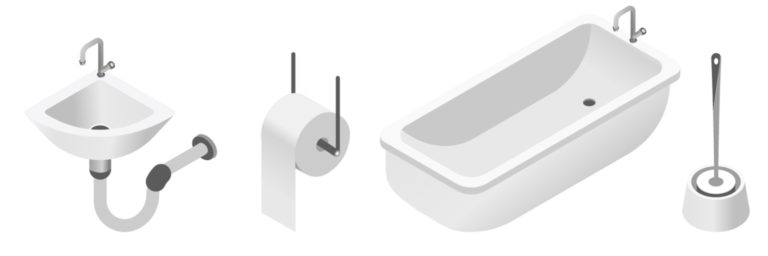Who would have thought that in the year 2020 we would see a new focus on basic hygiene in our everyday lives? We've all learned how to wash our hands to the tune of Happy Birthday, which surfaces are the worst for spreading germs and just how often we touch our own faces! We've also learned a few new things, such as the best masks to wear for everyday use, but when it comes to drain hygiene you can be sure that we have always maintained high standards for ourselves and our customers. Today we're looking at the basics of drain hygiene.
Different Drainage System
Just how many types of drainage systems are there? Well, many say there are just two, some say there are three and others will tell you there are four, so that's a good start! To break it down simply we're going to say that the majority of properties, both residential and commercial, have three types of drains and certain commercial properties might have a fourth. These are:
- Foul Water Drains: these are the drains you won't see much off as long as they are working well. Fowl water drainpipes carry water from toilets, sinks, baths, showers, dishwashers, washing machines and so forth. Foul water is also known as sewage, wastewater, greywater or soil water. This water goes to a treatment plant before being returned to the general population as safe or potable water.
- Surface Water Drains: these often look like open metal grates and they mostly take rainwater off the street to prevent puddling or flooding. Rainwater is not considered foul water and can run off the surface into these drains and head back to rivers and streams without carrying pollutants to the environment. You can spot them on pavements, roads and driveways and this leads to drain type number three...
- Gutter Drains: yes, technically this is an additional surface water drain, given that the drains take rainwater from the surface of a roof away from the walls of a property, down into a gully and away, but we class them as a separate entity in part because of the difference in maintaining them to other drain systems.
- Effluent Drains: also known as trade effluent, the clue here is that this relates to the practice of removing harmful liquids from a commercial property without cross-contamination with foul or surface water drains. Examples of such liquids are the runoff from factories, chemical plants, car washes and even swimming pools. Restaurants and commercial kitchens can be stung if they allow fat, oils and grease to enter the foul water drain systems, with fines in excess of several thousand pounds.
How to Manage Your Drains
Water must run down the correct drain. For most households, that means ensuring that your foul water is not running into your surface water and ensuring that you only flush the correct items down the drains and manage harmful fluids effectively.
For the average household, liquids that you might be tempted to pour down the sink or toilet but shouldn't include fat, oils, grease, paint, chemicals, such as toxic cleaning chemicals or car fluids, milk or medicine. These could be harmful to your drains or the wider environment and you should dispose of these in a more appropriate location, either in your household bin or at your local waste and recycling plant.
It is just as important to ensure you do not flush solid items down the drains. An easy way to remember what is flushable is to think of the 3 Ps: Pee, Poo, Paper. These are the only items safe to flush down your toilets.
We have pulled plenty of the following items out of drain systems where they have become caught in pipes or manholes and caused a foul-smelling and disruptive blockage so ensure you never flush: wipes, sanitary products, paper towels, condoms, food waste, cotton balls, floss or even masks. Remember, if something is labelled as disposable that means to be thrown in the bin and if something is labelled as flushable, that doesn't necessarily mean it will degrade in the pipes any time soon.
Best Practise for Drain Hygiene
With the best will in the world, drain blockages will happen, but these can be effectively reduced by only flushing the appropriate items. If a blockage does occur at your home or business, you can call or email us for advice or to book a job and we will be glad to help. We may have adjusted some of our working practices to come in line with the regulations around COVID-19 (such as ensuring we work in isolation from our customers and declining cups of tea, but that is a sacrifice our engineers are willing to make!), but our commitment to clearing blocked drains efficiently and safely has not changed. Our engineers still clean their workspace thoroughly and disinfect the location on completion of the job and we ensure they have all the PPE they require for the job. Our commitment to safety, hygiene and professional service has not changed!
If you require the services of Metro Rod you can get in touch with us in a variety of ways;
You can go to our website
You can get us on Twitter or Facebook
You can call us on 01869 277702
or you can connect with our sales and marketing team on LinkedIn

Talk to your local Metro Rod specialist
We are always happy to arrange a free site assessment and no obligation quotations for any work you might need. Alternatively, you can call our emergency hotline number on 0800 66 88 00
Get in touch Drainage Services

